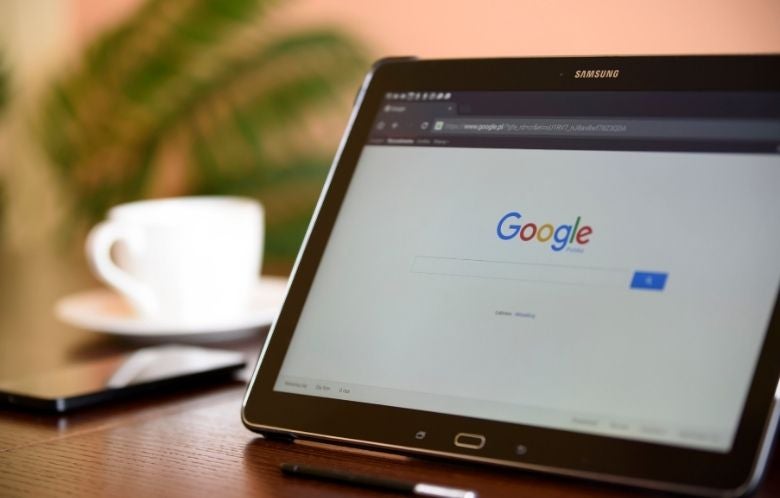It’s been a year since we announced that physical collections of library books have started showing up in the knowledge panel in Google in the United States. In that time, a lot has changed. (Both the understatement and the can’t-be-said-enough-truth of 2020). The biggest change is that most of us are online more now, even those of us who were online a lot before. School, meetings, knitting clubs, book clubs, dance classes – those are all online now. Whether or not your library is open to the public, library services have changed to be more hands-off, while remaining relevant to the needs of your community.
The big question, of course, is what does this all mean?
The hardest part is that we don’t have all (or even most) of the answers yet. Nor do we know all the questions to ask, even. But we do know enough to start wondering what the “why” questions are and how we can ask them.
We know Google is driving clicks to library catalogs
Individual libraries can check their engagement statistics and see in detail what people are clicking on during a Google search that leads them to a library catalog. If we roll up all the data from all the libraries who have Linked Library Service and have been showing up in Google, we see over one million clicks have gone from the Google knowledge panel to a library catalog in the past 11 months.
That’s a lotta clicks.
We know clicks fluctuate
If you have ever run a website, checked newsletter click metrics, evaluated social media metrics, then you know that metrics fluctuate. It is no surprise that the clicks from Google to library catalogs fluctuate too. As we have more years of data under our belts, we’ll be able to better answer questions about the national fluctuations in searching will be and to explore local variations and what those might mean.
We know the books people are clicking into the catalog for are varied
I should come as no surprise that people search the internet for everything. And, since there are books about everything, that the clicks from Google into a library catalog are as varied as the people searching themselves. Here is a selection of titles with clicks from one Linked Library Service customer during October 2020
- The Hidden Life of Trees by Peter Wohllenben
- Diary of a Wimpy Kid: The Deep End by Jeff Kinney
- Diagnostic and statistical manual of mental disorders: DSM-5
- Lovecraft Country by Matt Ruff
- Among His Slaves: George Mason, Slavery at Gunston Hall, and the Idealism of the American Revolution by Terry Dunn
- El Tapiz de Abuela by Omar Castaneda
We can start to ask some specific questions about the people doing the searching and how the library can help them. I picked the books above basically at random (or, I picked books where the title easily caught my eye as I scanned the stats spreadsheet), but I still think we can learn some things about this community.
The Diary of a Wimpy Kid books are popular (this is an evergreen statement as they are regularly a top viewed series in the NoveList Select Analytics Dashboard). BUT this also means Kinney’s books are an “in” to get more kids interested in the library.
The DSM-5 is another perennially popular book at libraries. We know people are struggling with mental health during a time of heightened stress. What could the library do here? Maybe include links to community resources for mental health? Links to well-reviewed books on mental health? Host an online program with tips for managing mental health during stress (no matter how many times I’m reminded that deep breaths, getting some sunlight, and phoning a friend can help, I always need another reminder)
Among His Slaves is by a local author for this library and is on a local historical topic. Could the library host a program on the enslaved people of Virginia’s Founding Fathers?
I’ve posited more questions than answers in this post because seeing the physical collections of libraries in Google is a dramatic shift in the landscape of library visibility and anything so dramatic (and exciting!) always leads to more questions. We recently announced a new place where Google driving clicks to library catalogs, but, like any innovation in library outreach, the basic question holds true here – what can I learn about my community so that I can serve them better?
Jennifer Lohmann is the Director of Sales and Marketing at NoveList. She is currently reading Last Call: The Rise and Fall of Prohibition by Daniel Okrent.



